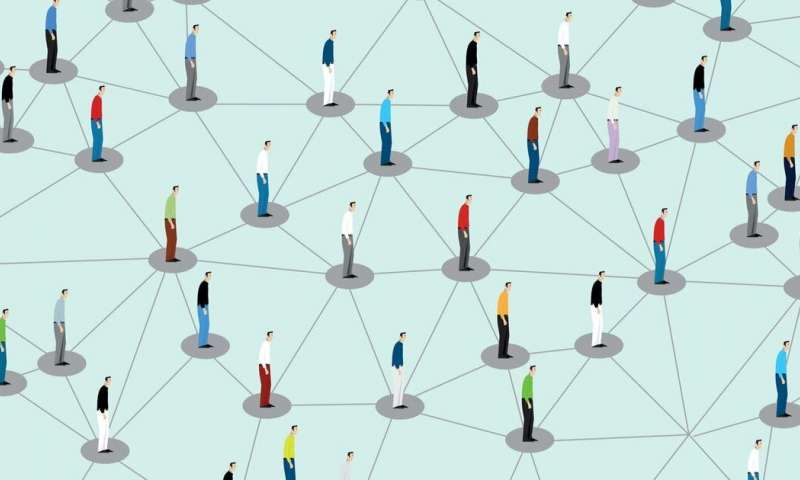An interview with a COVID-19 contact tracer
Contact Tracing is the process of finding and contacting individuals who may have been exposed to an infectious disease. Sometimes it’s a result of them having been at a location or event that had infected people and sometimes it’s a result of them having come in direct contact with an infected individual. It’s a technique that dates back centuries.
One of the most famous uses of this technique was to identify Mary Mallon (1969-1936), aka: the infamous “Typhoid Mary” who infected upwards of 50 people and ultimately caused the death of at least 3. I highly suggest reading her fascinating history on both the NIH website and Wikipedia

Trying to figure out who was in contact with who can be a daunting task
Something a lot of people don’t realize about contact tracing is that it goes far beyond just alerting people that they may have come in contact with an infected person. It also helps prevent further infection by people unknowingly exposing themselves to other non-infected members of the population. Contact tracers are also able to put these people in contact with the right people (doctors, diagnosticians, counselors, etc) to help the infected cope with their exposer both physically and mentally.
One of the other added benefits of contact tracing is that it helps epidemiologists study the spread of these diseases. They are quickly able to learn a lot about the disease’s transmission, it’s contagiousness, and even demographics of the infected population. These are all key factors in stopping the spread of a disease.
So, what’s actually involved in contact tracing? Well, we caught up with a professional contact tracer via Reddit. We asked them a few questions to help us better understand what the job entails. They wished to remain anonymous, so for the purposes of this interview, we’ll be calling them Steven.
Jason: First of all, where are you located? I know you asked to stay anonymous, but can you give us an idea of what part of the country you’re in?
Steven: The state I work for is in the Midwest. However, the job is fully remote, so many of our tracers live all across the country.
Jason: Can you tell us what a normal day looks like for you?
Steven: A normal day for me begins at 11:30 am. I then work until 8 pm. I do this five days per week, however our call center is open every day from 8 am to 8 pm. When I log on since I am a team leader I have a morning huddle with my team to check in with everyone and review our documentation notes put out by the state health department. There are changes every day to improve the existing system and to make sure we are in line with HIPPA regulations. After our huddle, we work through the case log. Typically we need to reach out to around 500 positive cases each day to conduct initial interviews.
Jason: These are interviews with the infected individuals – not those they may have had contact with, right? What sorts of questions do you ask during an interview?
Steven: That’s correct. During these phone interviews, we let people know they tested positive, try to find out where they got the virus, connect them with any information or resources they may need, and find out who they have been in contact with while they were contagious in order to identify their close contacts.
Jason: So, after you’ve identified the people who’ve had close contact with the infected, what do you end up doing? How many people is that?
Steven: Usually around 3000 per day. These are much shorter interviews letting them know they have been exposed, the proper steps they should be taking, and what to do if they start having symptoms. After the queues have been completed, everyone fields inbound calls from people responding to our voicemails. Usually on the weekends we do not complete our queues. During the week our workload isn’t too bad yet, but cases in our state are beginning to rise significantly, so I imagine we will be overwhelmed soon.
Jason: The cases are definitely rising at a frightening momentum…
Steven: We have only a fraction of the cases as some of the current hotspot states, so I have to imagine that those states are no longer able to effectively contact trace.
Jason: How long does each case take you to process?
Steven: One positive case typically takes around 30 minutes to process and then we follow up with them every week to see how they are feeling. Close contacts take around 15 minutes to process, but then we must follow up with them every day for 14 days. We try to send out text message or email surveys to make this go faster, but do need to call if they aren’t completed.
Jason: That’s absolutely incredible. Thank you so much for the work you do. You and your team are truly unsung heroes in this mess. Please stay safe!
Steven: Thank you – you too!
We’ll be continuing our interview with Steven over the following days. Please be on the lookout for our next article: A Day in The Life of a Contact Tracer




